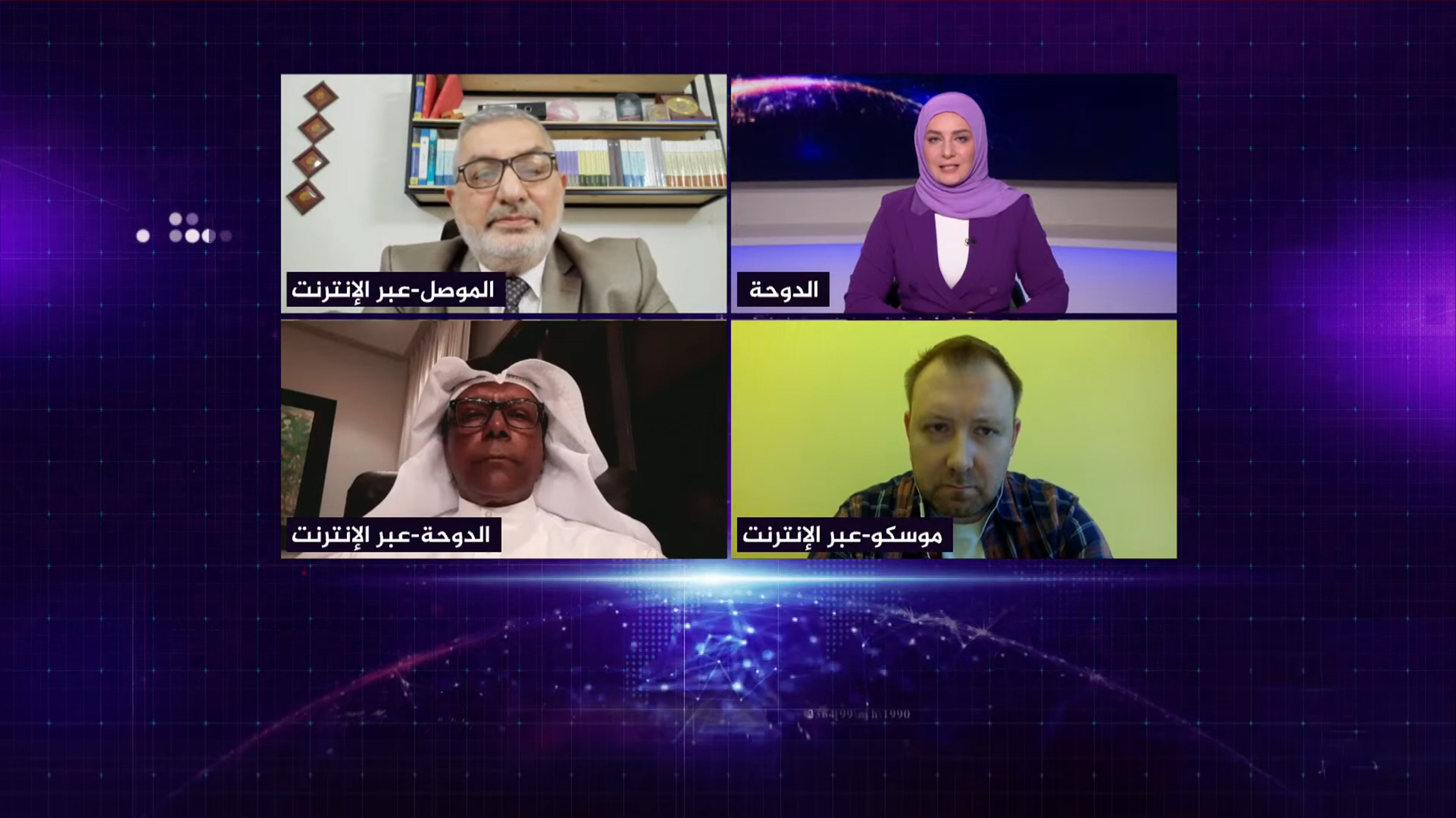
A webinar organised by Al Jazeera Centre for Studies in collaboration with Al Jazeera Mubasher on Sunday, 13 March 2022, on cyberwar and its role in international strategies argued that this new kind of war has become prevalent and influential, especially because mastering it does not require states to be wealthy, only that they allocate professional cyberattack groups to achieve their objectives.
Speakers in the webinar ruled out the possibility that Russia – to retaliate against Western countries that imposed economic sanctions against it because of its invasion of Ukraine – would destroy the internet networks that they use because it would be too difficult as the world wide web is decentralised. Therefore, if a part of it is disrupted, the rest will not be. However, submarine communications cables could be targeted, causing damage that would take some time to repair.
The webinar also warned that Western and Gulf countries could be hit with retaliatory cyberattacks due to their position on the Russian-Ukrainian war at the hands of hired cybercriminal groups. In this context, the webinar recommended that said countries take precautions and reinforce their cyber defence lines.
The webinar was aired on Al Jazeera Mubasher and live-streamed on AJCS’s social media platforms. Its speakers were: Mohammed Al-Dorani, Professor of Cyber Security at the Community College of Qatar; Hasan Al-Rizzo, Director of the Mosul Centre for Strategic and Future Studies; Pasha Sharikov, Associate Professor at Lomonosov Moscow State University and author of Information Security in a Multipolar World; and Piret Pernik, Cybersecurity Researcher at NATO Cooperative Cyber Defence Centre of Excellence (CCDCOE). Moderating the webinar was Al Jazeera Mubasher presenter Waad Zakaria.
The nature of cyberwars
The webinar opened by shedding light on the concept of cyberwar and how it differs from traditional war. Speakers explained that it is carried out in virtual cyberspace through computer networks and on the internet by hackers and teams dedicated to cyberattacks and cyber defence to destroy information and communication tools. They also mentioned that usually they are undeclared wars unless the targeted countries disclose them.
The speakers added that cyberwar is an “unbalanced” war as it relies on matters other than traditional geopolitics. Thus, countries do not have to be militarily powerful to be cyber powerful. They also said that the five most powerful countries in cyberwar are the United States, Russia, North Korea, Iran and China.
Moreover, the speakers indicated that the NATO announced aid for Ukraine to strengthen its resistance against Russian cyberattacks, that the alliance sent a team specialised in cyber defence and cybersecurity to the country at the beginning of the Russian invasion, and that this was not limited to NATO member states but included EU member states as well. Western companies specialising in cybersecurity also announced their willingness to provide free services impede any Russian offensive operation against Ukraine or any NATO or EU countries.
As for determining the source of cyberattacks, the speakers indicated that it is difficult but not impossible, especially if the nature of the expertise and capabilities behind the cyberattacks are known. This is because those who carry them out do not identify themselves. It is also difficult to determine the place from which cyberattacks are carried out, as they can be executed indirectly through a group of computers in a third country.
Impeding cyberattacks
On the reason why countries sometimes refrain from declaring that they have been hit by cyberattacks, the webinar explained it is difficult to determine the source of the attack, and therefore the targeted country is unable to retaliate. Furthermore, attacks usually are not disclosed until the media reports them and embarrasses the countries subject to them because a successful cyberattack indicates that there is a flaw in their cyber defence lines, which is dangerous indicator of the level of security, economy and communication. Accordingly, hundreds and perhaps even thousands of cyberattacks occur daily but are thwarted and disregarded. Some are brutal and impactful but are still not disclosed – as previously mentioned – either out of lack of knowledge of its source or to avoid embarrassment in front of public opinion.
Regarding the cyber capabilities of Arab countries, the webinar maintained that Arab countries do not have sufficient cyber deterrence power or qualified cyber agents working for them, but defend themselves through foreign tools and companies that have experience in the field and can help them ward off the attacks they are exposed to.
Additionally, the webinar held that there are retaliatory operations and cyber counter-retaliation in the context of the ongoing war between Russia and Ukraine. But as to whether Russia will retaliate directly against the countries that help Ukraine, the speakers maintained that it is not likely as it would be understood by the West as a “declaration of war,” which would necessitate a counter response. However, the speakers alluded to the possibility that Russia would retaliate through hired organised cybercriminal groups working, targeting any Arab, Gulf or Western country supporting Ukraine, and later absolve itself of the responsibility. Hence, the speakers asserted in their conclusion that Arab and Gulf countries should take cyber precautions and warned of the potential necessity of “declaring a state of cyber emergency” so that they are prepared to deter any attacks that may occur.